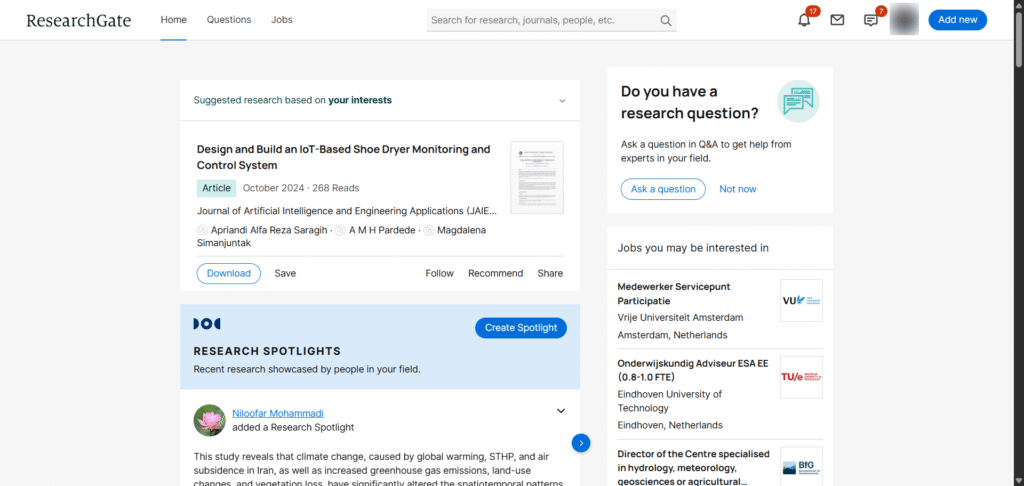How to increase your Google Scholar citations? Easy, by making your research visible, accessible, and useful to other scholars. Citations matter because they show the impact of your work, open doors to collaborations, and strengthen your academic reputation. The good news is, there are practical steps you can take right away to give your citation count a boost. Here are 10 tips explained so you can start applying them today.
- Publish in well-known journals that many researchers read.
- Use clear and searchable keywords in your title and abstract.
- Share your papers on academic networks like ResearchGate.
- Upload full texts of your work where possible.
- Collaborate with other researchers to reach wider audiences.
- Write review articles that others are likely to cite.
- Present your work at conferences to gain more visibility.
- Keep your Google Scholar profile updated and complete.
- Cite your own related work carefully where relevant.
- Promote your research on social media and university websites.
Need a bit of explanation? Let’s break down each tip so you can see exactly how to increase your Google Scholar citations.
Here is How to Increase Your Google Scholar Citations in 2025
Publish in well-known journals that many researchers read
Getting your work into journals that people actually read is one of the quickest ways to get noticed and cited. The more respected and widely read the journal, the more likely your research will reach the right audience.
Where to find well-known journals
- Use journal ranking lists like SCImago Journal Rank (SJR) or Journal Citation Reports (JCR)
- Check field-specific associations, e.g., IEEE for engineering or ACM for computer science
- Browse recent references in top papers to see which journals are frequently cited
Use clear and searchable keywords in your title and abstract
If people can’t find your paper, they can’t cite it. Using the right keywords in your title and abstract makes it easier for others to discover your work.
Tips for choosing the right keywords
- Think about what terms your peers would type when searching for research like yours
- Avoid overly vague or extremely technical jargon
- Include 4–6 key terms in your abstract that clearly summarise your topic

Sharing your work online helps get it in front of researchers who are actively looking for new studies in your field. It’s a simple way to boost visibility without waiting for citations to accumulate naturally.
How to maximise visibility on networks
- Create a complete profile with your research interests and publications
- Tag your paper with relevant topics so the right audience is notified
- Engage by following researchers and commenting on related work
Upload full texts of your work where possible
People are more likely to cite papers they can access freely. Uploading preprints or full texts online makes your research available to everyone and increases your citation chances.
Options for sharing full texts
- Upload preprints to repositories like arXiv or SSRN
- Share PDFs on your university profile if allowed
- Consider open-access journals to make your research fully accessible
Collaborate with other researchers to reach wider audiences
Co-authoring papers not only brings fresh ideas but also exposes your work to multiple networks, increasing the likelihood of citations.
Ways to find collaborators
- Attend conferences and workshops to meet potential co-authors
- Join research groups or online communities in your field
- Reach out to researchers who are working on complementary topics
Write review articles that others are likely to cite
Review papers summarise existing research and are often used as reference points, making them highly citable.
Choosing topics for reviews
- Focus on areas with growing interest or recent developments
- Summarise the current state of knowledge and provide practical guidance for researchers
- Check what recently published reviews are missing and fill that gap
Present your work at conferences to gain more visibility
Presenting at conferences helps your work reach experts and creates opportunities for networking, which can lead to more citations.
Maximising conference impact
- Present talks, posters, or workshops to reach experts
- Share conference proceedings online when allowed
- Network with attendees and follow up with contacts who show interest
Keep your Google Scholar profile updated and complete
A complete and up-to-date profile ensures that other researchers can find all your publications and cite your work correctly.
Steps to optimise your profile
- Add all publications, including conference papers and preprints
- Include a professional photo and current affiliation
- Regularly check that citations are correctly linked to your papers
Referencing your previous work when relevant helps build a coherent research story and can increase citations to both the old and new papers.
How to cite your work effectively
- Only reference prior papers when directly relevant
- Use self-citations to show progression in your research
- Avoid over-citing yourself, as this can appear manipulative
Sharing your research online brings it to a wider audience, which can increase reads, downloads, and ultimately citations.
Best ways to promote your research
- Post summaries of your paper on Twitter, LinkedIn, or ResearchGate
- Use hashtags relevant to your field to reach interested researchers
- Share your work on your university website or blog to attract a wider audience
Final Thoughts and Actionable Tips
Increasing your Google Scholar citations is really about being consistent, strategic, and patient. It’s not just numbers—each citation shows that your research is being noticed and used. Keep these ideas in mind:
- Think long-term – Citations grow over time, so focus on building a strong, visible presence steadily.
- Be patient – Some papers take months or years to gain attention, and that’s normal.
- Track your progress – Keep an eye on which papers are getting cited and which strategies seem to work best for you.
- Stay active in your field – Attend events, engage with peers, and follow new research trends to remain relevant.
- Keep improving your writing – Clear, well-structured, and interesting papers are more likely to be read and referenced.
By staying consistent and engaged, you’ll naturally increase your research visibility and influence over time. Even small, steady efforts add up to meaningful results.
Conclusion
Increasing your Google Scholar citations is less about shortcuts and more about making your research visible, accessible, and valuable to others. By publishing strategically, sharing your work widely, collaborating with peers, and actively engaging with your academic community, you give your research the best chance to be noticed and cited. Citations reflect not just numbers, but the real-world impact of your work. With consistent effort, thoughtful promotion, and a focus on quality, you can steadily grow your scholarly influence and ensure your research reaches the audiences who will benefit most from it.
And if you’re looking to broaden your academic reach even further, consider exploring other platforms beyond Google Scholar. Our guide on the Top 15 Google Scholar Alternatives for Academic Research highlights additional tools and databases that can help you discover relevant papers, track citations, and connect with researchers in your field. Leveraging these resources alongside Google Scholar can give your research even greater visibility and impact.


